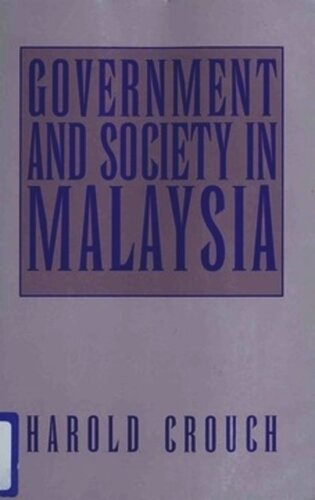

Most ebook files are in PDF format, so you can easily read them using various software such as Foxit Reader or directly on the Google Chrome browser.
Some ebook files are released by publishers in other formats such as .awz, .mobi, .epub, .fb2, etc. You may need to install specific software to read these formats on mobile/PC, such as Calibre.
Please read the tutorial at this link: https://ebookbell.com/faq
We offer FREE conversion to the popular formats you request; however, this may take some time. Therefore, right after payment, please email us, and we will try to provide the service as quickly as possible.
For some exceptional file formats or broken links (if any), please refrain from opening any disputes. Instead, email us first, and we will try to assist within a maximum of 6 hours.
EbookBell Team

5.0
50 reviewsThe Malaysian political system incorporates a mix of democratic and authoritarian characteristics. In this comprehensive account, Harold Crouch argues that, while they may appear contradictory, the responsive and the repressive features of the system combine in an integrated and coherent whole.
Consistently dominated by the Malay party UMNO, which represents the largest ethnic group, the Malaysian government requires the support of its Chinese, Indian, and East Malaysian minorities to retain control. The need to appeal to a politically and ethnically divided electorate restrains the arbitrary exercise of power by the ruling coalition. As a result, the government responds to popular aspirations, particularly since a split in the dominant Malay party in the 1980s. Yet it also controls the electoral process, ensuring victory in all national elections.
Communal, social, and economic factors have all contributed in rather ambiguous ways to shaping the Malaysian political system. Communal tensions, change in the class structure, and the consequences of economic growth have generated pressures in both democratic and authoritarian directions. The government has been remarkably stable despite sharp ethnic divisions and, Crouch suggests, it is unlikely to move swiftly toward full democracy in the near future.